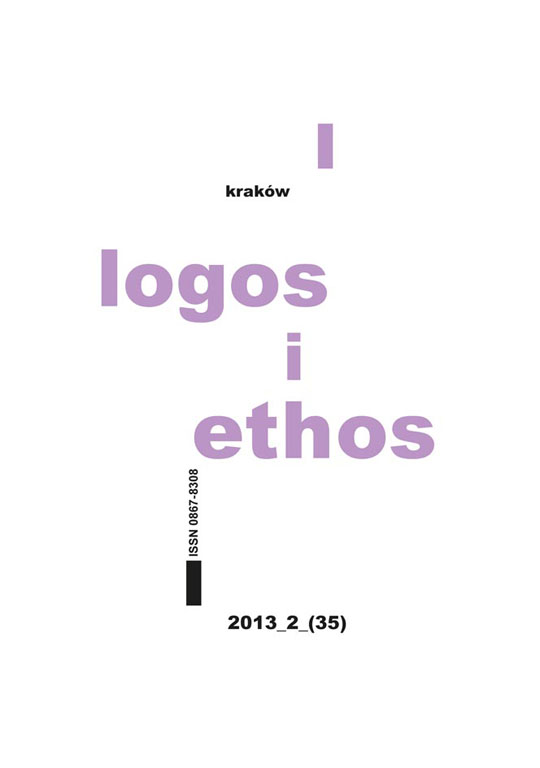Depresja jako „choroba na śmierć”
DOI:
https://doi.org/10.15633/lie.64Słowa kluczowe:
depression, Kierkegaard, mental illness, Calhoun, existential philosophyAbstrakt
Depression is not a popular philosophical problem, despite the fact that it is one of the most frequent psychopathologies nowadays. The aim of the article is to consider the problem of depression as a philosophical one in terms of Cheshire Calhoun’s analytic work on depression and S.ren Kierkegaard’s philosophy of despair and anxiety. The author shows that the state of depression is connected to the sick man’s failure to be a living being due to the process that Calhoun calls “the defeat of an agency”. Calhoun claims that a man stops to be an active person because his will is disengaged due to his feeling of estrangement from his normative outlook of self-conception, his disbelief in the effectiveness of instrumental reasoning and lack of confidence in one’s security from misfortune and harm. The permanent state of this defeat leads to being disengaged from one’s very roots of being a motivated person. At this point living the being is opened to despair and anxiety, which are the means of creating a state of being as a “defeated agency”. The analysis of Kierkegaard’s work brings a new perspective of depression. A depressed person is one who is possessed by despair and anxiety. The analysis of different forms of despair and anxiety bring new light to the process of becoming depressed. It shows that the depressed person is in a permanent state of being “cut off” from life. This perspective leads to the conclusion that depression could be seen as Kierkegaard’s „Sickness Unto Death”.
Pobrania
Opublikowane
Numer
Dział
Licencja
Prawa autorskie (c) 2013 Krzysztof Kunisz

Utwór dostępny jest na licencji Creative Commons Uznanie autorstwa 4.0 Międzynarodowe.
W kwestii praw autorskich obowiązują następujące zasady:
1. Twórca oświadcza, że służą mu prawa autorskie do utworu i że nie są ograniczone w zakresie objętym niniejszym oświadczeniem oraz że utwór jest dziełem oryginalnym i nie narusza praw autorskich innych osób.
2. Twórca zezwala Uniwersytetowi Papieskiemu Jana Pawła II w Krakowie na nieodpłatne, niewyłączne i nieograniczone w czasie korzystanie z utworu, to jest:
- utrwalanie i zwielokrotnianie: wytwarzanie egzemplarzy utworu techniką drukarską, reprograficzną, zapisu magnetycznego oraz techniką cyfrową;
- obrotu oryginałem albo egzemplarzami, na których utwór utrwalono (wprowadzanie do obrotu, użyczenie lub najem oryginału albo egzemplarzy, publiczne wystawienie, wyświetlenie, a także publiczne udostępnianie utworu w taki sposób, aby każdy mógł mieć do niego dostęp w miejscu i w czasie przez siebie wybranym);
- włączenie utworu w skład utworu zbiorowego;
- udzielanie przez Uniwersytet Papieski Jana Pawła II w Krakowie sublicencji Creative Commons Uznanie autorstwa 4.0 Międzynarodowe (CC BY 4.0)
3. Uniwersytet Papieski Jana Pawła II w Krakowie udostępnia utwór na Platformie Czasopism należącej do uczelni, na licencji Creative Commons Uznanie autorstwa 4.0 Międzynarodowe (CC BY 4.0). Tym samym uprawnia wszystkich zainteresowanych do korzystania z utworu pod następującymi warunkami:
- zostanie podany autor i tytuł utworu,
- zostanie podane miejsce publikacji (tytuł czasopisma i adres internetowy do oryginalnie opublikowanego utworu).

